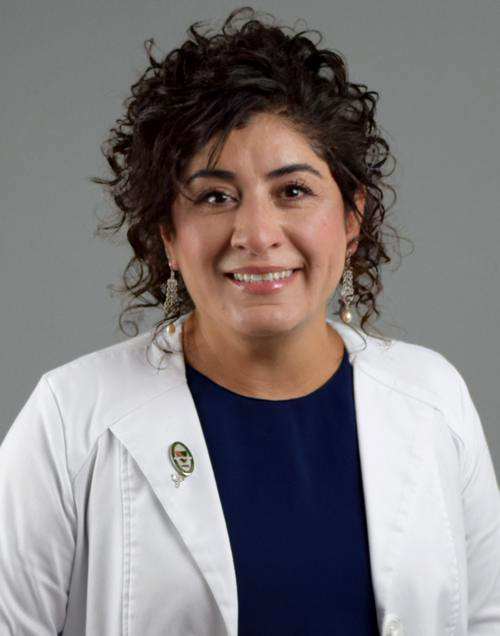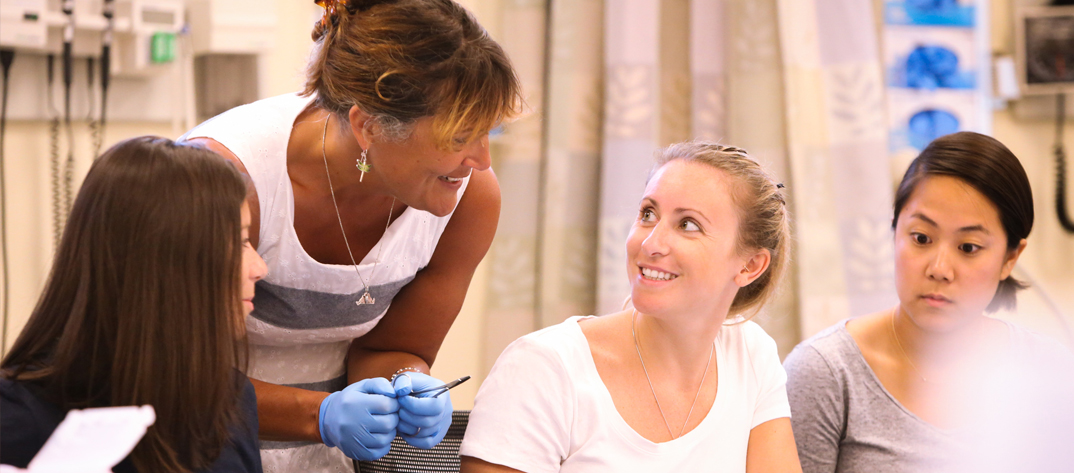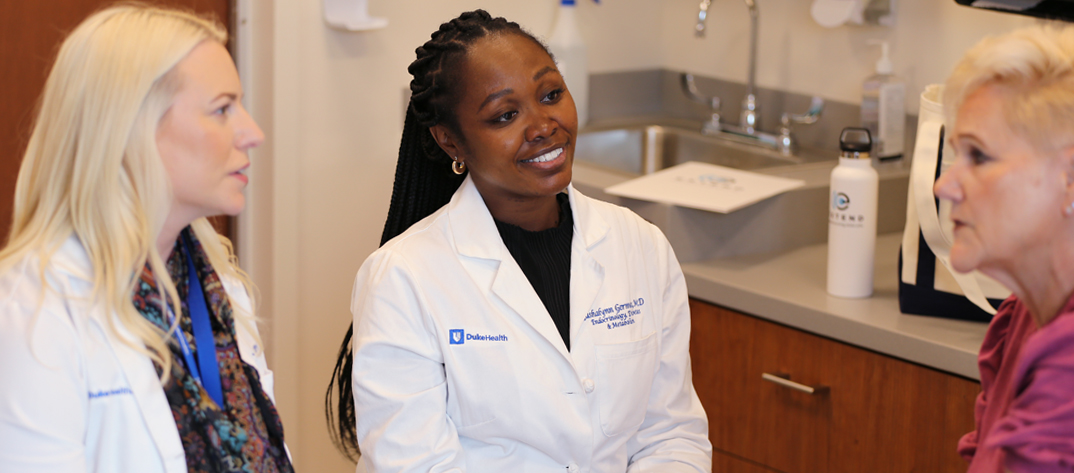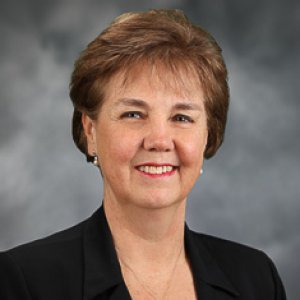For more than 25 years, Duke University School of Nursing has been a leader in addressing the ongoing challenges of cardiovascular disease.
Our comprehensive cardiology nursing specialty equips advanced practitioners with expert knowledge in the care of individuals with cardiovascular disease issues. Duke University School of Nursing's cardiology certificate program, encompassing nine credit hours, features a distinct combination of online courses and intensive on-campus experiences, preparing you to meet the high standards of the American College of Cardiology Core Curriculum for cardiac nurses.
Whether you’re a current nurse practitioner student or a practicing NP, our cardiology specialty will prepare you for success in both inpatient and outpatient cardiovascular settings. After completing this program, you can find employment as a nursing cardiology specialist with marketable skills in general cardiology, electrophysiology, heart failure, cardiac transplant, and vascular and lipid specialties.
"The Cardiovascular program at Duke University gave me a good foundation as a nurse practitioner in cardiology. With this knowledge, I was able to successfully pass the Certified Cardiovascular Knowledge Exam offered by the American College of Cardiology, which is a stepping stone towards my path to becoming a FACC."
Georgina Aguirre NP - Former Cardiology Speciality Student
Cardiology Specialty Highlights
The online coursework at the heart of our advanced practice cardiology specialty prioritizes the latest evidence-based knowledge in the field of heart and vascular science. As one of only five cardiology specialties in master’s programs across the country, our program offers several unique benefits, including:
A flexible course schedule:
We know how important it is for students or practicing nurses to balance life, work and study. Our online cardiology nursing courses allow you to further your education around other commitments. Advance your career as a cardiology nursing specialist with convenient courses designed to fit your busy schedule.
Esteemed faculty:
Become an expert in advanced practice cardiology nursing with the guidance of our world-class heart and vascular faculty experts. From virtual meetings to in-person training, our faculty members pull from their experience as practicing clinicians in cardiology to give you the essential skills and knowledge to help your patients.
Practical hands-on training:
Tailor your clinical experiences to your interests and goals with a minimum of 168 clinical hours in heart and vascular settings across the spectrum of nursing cardiology. These could include inpatient cardiology services, electrophysiology clinics or a rural clinic. When you participate in on-campus clinical experiences, you’ll work in the internationally renowned Duke Heart Center.
Cardiology Nursing Courses
When you join our cardiology specialty program, you’ll take rigorous courses covering advanced topics in cardiology nursing that can help you take on greater responsibilities in your current clinic or transition to a career as a cardiac nurse. You’ll supplement these courses with clinical training under the mentorship of an expert clinician in a cardiovascular specialty.
The three courses you’ll take as you earn your cardiology specialty certificate are:
- NUR 801: Advanced Practice Nursing: Cardiovascular Specialty I (Spring only).
- NUR 803: Advanced Practice Nursing: Cardiovascular Specialty II (Summer only).
- NUR 805: Advanced Practice Nursing in Adult-Gerontology Cardiovascular Synthesis.
Learn More About the Cardiology Specialty Program
Enrollment Options
If you’re interested in adding the nursing cardiology specialty to your academic plan, you must complete the Add a Specialty Form. This form must be submitted to the MSN Program Office via email at least 10 days before the start of the semester.
Nurse practitioners with an MSN degree or higher from a regionally accredited institution and nurse practitioner students from other regionally accredited colleges or universities should follow the instructions for the Specialty Certificate application. Enrollment decisions are made by the lead cardiology nursing faculty based on space availability.
Specialty Director
Margaret Bowers
DNP, FNP-BC, CHSE, FAANP, FAAN, FACC
Midge Bowers is a Clinical Professor and Director of the Cardiovascular Specialty at Duke University School of Nursing. She holds a secondary appointment in the Department of Medicine in the Division of Cardiology as a nurse practitioner. Dr. Bowers earned a BSN from Binghamton University, a MSN as a Clinical Nurse Specialist in critical care at Duke University School of Nursing, and completed a Post-Master’s Certificate as a Family Nurse Practitioner at Duke.
Learn more about Margaret Bowers: Scholars@Duke
Q&A With Lead Faculty Midge Bowers
Cardiovascular disease remains the number one cause of mortality in the U.S. today. I am passionate about providing care with a focus on reducing mortality and preventing heart disease to create a healthier nation. There are many options for improving cardiovascular health that do not include medications. Being active, reducing salt and sugar in your diet, and not smoking all contribute to improving cardiovascular health and ultimately to reducing the risk of developing cardiovascular disease.
The cardiology specialty curriculum is mapped to the recently published American College of Cardiology NP/PA competencies, preparing the nurse practitioner with the knowledge and skills to provide evidence-based care in their future practice. The clinical hours provide students with the opportunity to engage with experienced cardiovascular clinicians in face-to-face or telehealth experiences.
Adult-gerontology primary or acute care and family nurse practitioner students, as well as nurse practitioners in current practice who want to work in cardiology.
An ideal candidate for this practice has nursing experience in cardiology, which provides a foundation for delving into advanced cardiovascular content. The candidate can be a nurse practitioner currently working in family practice or internal medicine who would like to focus on cardiovascular population-based health care. The candidate can also be an adult-gerontology primary care, acute care or family nurse practitioner student who wants to focus their care on individuals with acute or chronic cardiovascular conditions.
This specialty expands opportunities for primary care nurse practitioner students to develop a cardiovascular niche in an internal medicine or family practice. This niche can focus on the care of individuals with chronic cardiac conditions such as high blood pressure or heart failure. For acute care nurse practitioners, advanced cardiovascular knowledge and skills provide an expanded skill set to stand out from other candidates when applying for acute care nurse practitioner positions.




